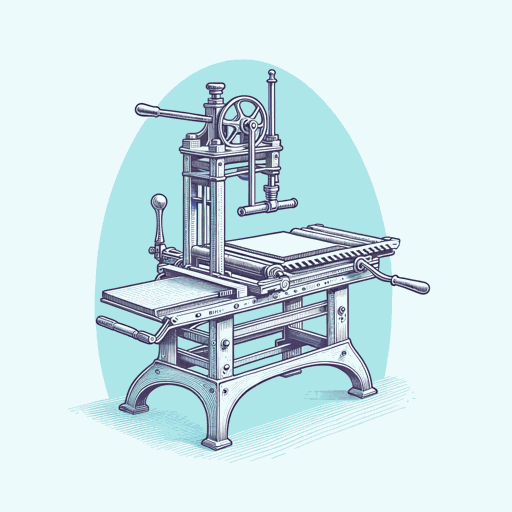22 pages • 44 minutes read
Benjamin FranklinThe Way To Wealth
Nonfiction | Essay / Speech | Adult | Published in 1758A modern alternative to SparkNotes and CliffsNotes, SuperSummary offers high-quality Study Guides with detailed chapter summaries and analysis of major themes, characters, and more.
Summary and Study Guide
Summary: “The Way to Wealth”
The essay begins as Poor Richard addresses his audience, “Courteous Reader,” and admits that few “other learned authors” have quoted him, despite his being “an eminent author of almanacs annually now a full quarter of a century” (1). Poor Richard does take solace in the fact that “[his] writings produce [him] some solid pudding” (1) thanks to the people who buy his work, whom he describes as “the best judges of [his] merit” (2). Because Poor Richard has “frequently heard one or other of [his] adages repeated” as he walks around, even in places “where [he is] not personally known” (2), he feels a sense of accomplishment. Not only are his recommendations followed, but “some respect for [his] authority” (2) exists. At this point in the essay, Poor Richard makes a confession: “I have sometimes quoted myself with great gravity” (2).
Upon observing a crowd waiting for “a vendue of merchant goods” to open for business, Poor Richard overhears the people “conversing on the badness of the times” (3). One person in the crowd calls out to another, “a plain clean old man, with white locks” asks him of his opinion of the times and of the “heavy taxes [that may] quite ruin the country” (3). The man, Father Abraham, is happy to oblige, and he delivers a short speech to the crowd, while Poor Richard listens and looks on.
Father Abraham starts his speech by acknowledging that the taxes are “indeed very heavy,” but much worse than the taxes imposed by the government are the taxes of “our idleness […], our pride […], our folly, and from these taxes the commissioners cannot ease or deliver us by allowing an abatement” (4). He quotes Poor Richard here to offer the crowd advice about what to do about this problem: “God helps them that help themselves” (4).
Father Abraham continues, explaining his meaning. More costly than government taxes are the costs of “idleness [which] taxes many of us much more” (5) if the moments wasted doing nothing or next to nothing are counted up. According to Father Abraham, “[s]loth, by bringing on diseases, absolutely shortens life” (5), while oversleeping leads to lost time, which can never be regained. Father Abraham supports his statements with many of Poor Richard’s aphorisms, reminding his listeners that “early to bed, and early to rise, makes a man healthy, wealthy, and wise” (5) and that it is futile to practice “wishing and hoping for better times” (6). Much better is to act on one’s wishes instead of hoping for them to come true, and this action is all that is needed to pay taxes, which are never going to disappear. Father Abraham goes on to employ 19 of Poor Richard’s aphorisms to support his belief in hard work and to encourage the crowd listening to him to be industrious.
When the crowd asks if “must a man afford himself no leisure” (7), Father Abraham responds with more of Poor Richard’s words: “[S]ince thou art not sure of a minute, throw not away an hour” (7). He is careful to note the difference between leisure and laziness, but emphasizes that “industry gives comfort, and plenty, and respect” (7). More importantly, Father Abraham says, society must “not trust too much to others” (8), preferring instead that people develop self-reliance; this way, individuals can maintain awareness over their own matters, an easy way to avoid problems. To this advice regarding “industry […] and attention to one’s own business” (10), Father Abraham adds a reminder about the importance of cultivating frugality: “A man may, if he knows not how to save as he gets, keep his nose all his life to the grindstone, and die not worth a groat at last” (10). The act of saving is just as important as the act of getting, after all, and small expenses like “a little tea, or a little punch now and then, diet a little more costly, clothes a little finer, and a little entertainment now and then” (12) add up quickly.
At this point in his speech, Father Abraham calls the crowd’s attention to their setting: “this vendue of fineries and knicknacks” (13). He does so in order to alert them to the dangers of unnecessary spending, even if the objects being purchased are inexpensive; often, “the cheapness is apparent only, and not real” (13) because it encourages wanton and unneeded purchasing. Poor Richard laments this kind of excess, saying that “’tis foolish to lay our money in a purchase of repentance,” and that “[w]ise men, as Poor Dick says, learn by others’ harms, fools scarcely by their own” (13). Examples of these fools are those who would choose to be hungry over fine clothes. Father Abraham’s words of caution extend to the case of “the genteel [who] are reduced to poverty” thanks to excessive spending, and he agrees with Poor Richard’s assertion that “a ploughman on his legs is higher than a gentleman on his knees” (13). He goes on to quote Poor Richard again, noting that individuals who notice “when the well’s dry” only then will notice “the worth of water” (13). Father Abraham suggests that remembering one’s position can help with this matter of over-spending, as the one who borrows from others is often the one who feels the most sorrow. As well, Father Abraham reminds his listeners that “[w]hen you have bought one fine thing you must buy ten more, that your appearance is all of a piece,” and it is unfortunate as well as ridiculous for “the poor to ape the rich, as for the frog to swell, in order to equal the ox” (14). Being true to one’s lot in life is as important as avoiding the sin of pride, Father Abraham continues, and in the words of Poor Richard, “pride that dines on vanity sups on contempt” (15). Appearances mean very little as they cannot “promote health; or ease pain” (15). Worse, he warns, pride in one’s appearance “creates envy, it hastens misfortune” (15).
After administering these life lessons to his audience, Father Abraham changes tack: “But what madness must it be to run in debt for these superfluities! We are offered, by the terms of this vendue, six months’ credit” (16). After he mentions this piece of supposed good luck, Father Abraham once again reminds the crowd that going into debt risks one’s own independence and stability. He discourages his listeners from choosing to live “in fear” of their creditors, predicting that they will “make poor pitiful sneaking excuses and by degrees come to lose your veracity” (16). Father Abraham acknowledges that it is indeed “hard for an empty bag to stand upright” (16), and that poverty is difficult to endure, but the tyranny of debt is far worse than poverty. The demands of repayment often intensify at inconvenient times, often sooner than the debtor expects; in the words of Poor Richard, “[t]hose have a short Lent […] who owe money to be paid at Easter” (16). Father Abraham starts to conclude his speech with a plea to the crowd: “[P]reserve your freedom; and maintain your independency; be industrious and free; be frugal and free” (16). With the wisdom of these ways, surely “you will no longer complain of bad times, or the difficulty of paying taxes” (16).
As a last point to ponder, Father Abraham gently reminds everyone to look after each other and to “comfort and help” (17) anyone who seeks charity. As Poor Richard says, “[W]e may give advice, but we cannot give conduct” (17). “Thus the old gentleman ended his harangue,” and the crowd “immediately practiced the contrary” (18). Father Abraham’s listeners all began to spend their money enthusiastically, as soon as the vendue opened, and Poor Richard observes that “the good man had thoroughly studied [his] almanacs,” a situation that “[his] vanity was wonderfully delighted with” (18). Thanks to Father Abraham’s warnings, all of which incorporated many of Poor Richard’s own pieces of wise advice, Richard “went away resolved to wear [his] old [coat] a little longer,” encouraging the reader to do the same so that “thy profit will be as great as [his]” (18).
Related Titles
By Benjamin Franklin




